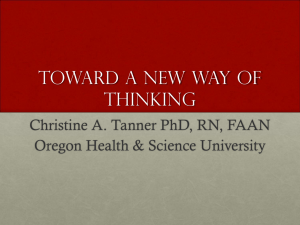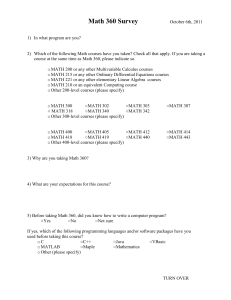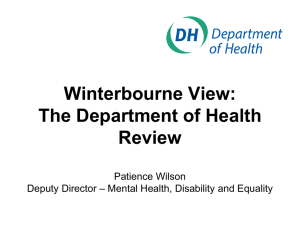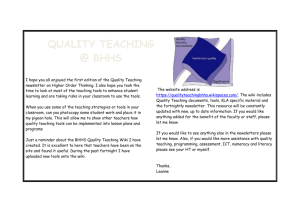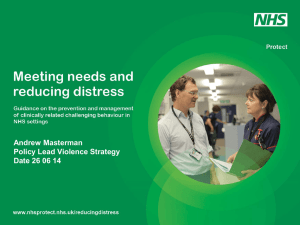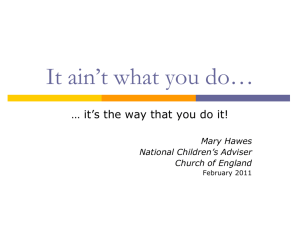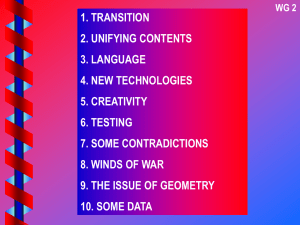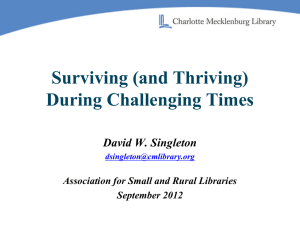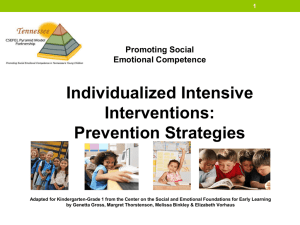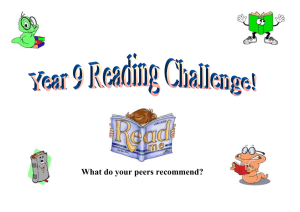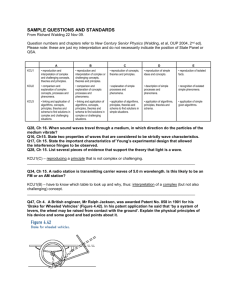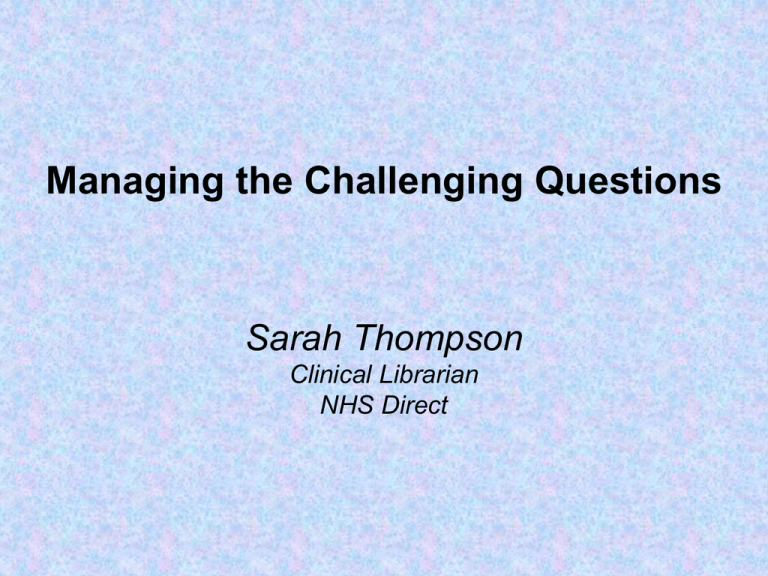
Managing the Challenging Questions
Sarah Thompson
Clinical Librarian
NHS Direct
Outline of this session
Types of Challenges
Challenging Questions
What to Avoid
Issues to explore
Types of Challenges
Give me everything you have on...
Level of Understanding
Unable to find the information
Method of Delivery
Dealing with Emotion
Delivering Bad News
Ethical/ Moral Conflicts
Information, not Advice
Give me everything you have on...
Information Needs Assessment
What do they already know?
What level of detail do they require?
Open Ended and Closed Questions
Level of Understanding
Assessing their level
Level of detail
Information must be meaningful
Unable to find the information
Have a plan: a list of websites/ resources for
particular enquiries, e.g. Medicines enquiries,
conditions and treatments, travel health, NHS
services, complementary and alternative
treatments, guidance, etc.
Can also refer patients to other services as
appropriate, such as their healthcare team, NHS
Direct, PALS, Medicines helpline services,
specialist support groups for their condition.
Method of Delivery
Email, postal, over the telephone,
computer access
Access requirements; Braille, large print,
audio tape, different language
Additional support; dyslexia, learning
difficulties, etc.
Dealing with Emotion
Identify and Manage
Tearful, irritable, angry, vulnerable, helpless,
anxious, frightened, etc.
Listen, Acknowledge and Deal (LAD)
Calm, professional and compassionate
Help them to gain control through knowledge
and understanding
Offer quiet place, or to take information away
with them
Delivering Bad News
Provide a complete answer
Withholding or censoring information
Facts, not opinions
Offer support, along with the information
Stay within your role boundary
Compassion, not pity
Professional and calm
Ethical/ Moral Conflicts
Your ethical or moral beliefs may be tested
Plan for all eventualities to prepare yourself
Ensure you are ready to put your own feelings
on a back burner to help the patient
Examples might include; abortion, safe sex
advice, safe ways to self harm, information on
assisted suicide, etc.
CILIP Ethical Principles and Code of
Professional Practice
Information, Not Advice
Support the patient to make their own
informed decision
Allow them to have an informed discussion
with their healthcare provider
Not the role of an information provider to
provide medical advice, what to try or
avoid, but to offer a range of information
from reliable, evidence based sources.
Use a disclaimer to protect yourself
What to Avoid
Making Promises
Personal Experience
Giving Opinions
Interpret information to a personal
circumstance
Promote individual treatments
Provide access to e-resources that
exclude patients and carers from licenses
Challenging Questions #1
What causes the discrepancy in my leg
length?
We can’t tell them what has caused their
condition, but we can provide information
on causes in general, offer information on
musculoskeletal structure, and suggest
visit to GP for a diagnosis specific to them.
Challenging Questions #2
A friend of mine, who is into her complementary
therapies, has recommended seeing an
iridologist to see if the colourations in my iris can
help detect health problems, is this reliable?
We cant say yes or no, but we can provide some
links to studies which have investigated the
reliability of iridology, offering a balanced
response.
Challenging Questions #3
I think my granddaughter is using her crutch
wrong, she had knee surgery and is holding the
crutch in her opposite hand, is this right?
Cant advise on the right way to hold a crutch as
this can vary for different reasons, e.g. type of
surgery, where the patient is with her recovery,
etc. She should have been given this information
by her care provider, delicacy required with third
party requests.
Challenging Questions #4
After a recent holiday in Mali (Sub-Saharan Africa)
I've been diagnosed with Guinea Worm. I've
heard that they exit the body in a gruesome way,
can you tell me if this is true?
This is straightforward in content but the extraction
of guinea worms is unpleasant and is
challenging in that it requires tact and sensitivity
to pass the information on.
Challenging Questions #5
How long does cocaine stay in your system,
will it show up on a urine test?
Does providing the answer condone illegal
drug use?
What if this query was from an Airline Pilot,
would you have a responsibility to let the
airline know?
Challenging Questions #6
I've had stomach pain for a while now, please can
you give me some information on Stomach
Cancer?
Self-diagnosis? Refer to GP to assess the pain
and find out what's causing it. Provide basic
information?
All symptom based enquiries should be directed to
a health professional for advice and where
necessary, a diagnosis.
Challenging Questions #7
Female asks how she can treat cuts and bruises at
home without seeing anyone.
Do you question if she has the cuts and bruises,
and if so, how she got them? Or just answer the
question with first aid advice?
What if she is suffering abuse and this is a chance
she has of someone noticing something is
wrong and offering help?
Challenging Questions #8
Daughter is caring for her mother who has
dementia and asks for some information. During
the conversation she tells you she thinks her
mother’s quality of life has reduced significantly.
Do you ask how she's coping? Should consider
the daughters emotional needs here too along
with the information on dementia.
Need to assess the risk that she might cause harm
to herself or her mother if she doesn't receive
support.
Issues to explore
Third Party Enquiries
Legal Restrictions
Child Protection
Safeguarding Adults
Policy and Guidelines
Develop a set of policies and guidelines for
how your service will deal with enquiries
which might be deemed challenging or
controversial.
Conclusion
More than just answering the question
Information Need Vs Information Want
Often more complex than first seems
Need to discuss with patient to explore situation
Right to Information Vs Ethical/ Moral Conflicts
Remember they may not be able to process
information at the time of the request
Any Questions?
?
sarah.thompson@nhsdirect.nhs.uk

